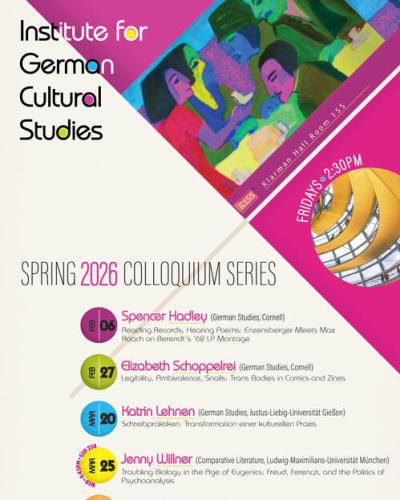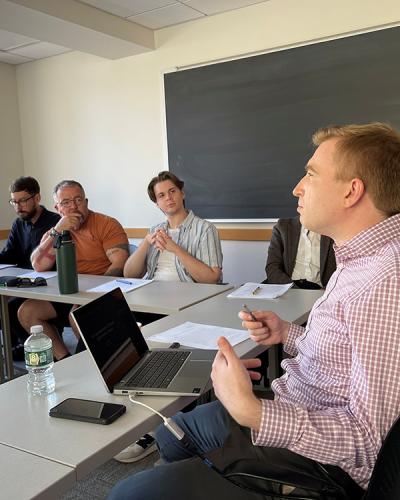On September 7, 2018, Professor Carl Niekerk (University of Illinois, Urbana-Champaign) kicked off this year’s colloquium series with his paper entitled “Buffon, Blumenbach, Herder, and the Origins of Modern Anthropology.” Tracing the conflicted relationship between Enlightenment humanism and anthropology, Niekerk showed how many 18th century thinkers used a speculative approach to arrive at their theories of the “human.” Niekerk also engaged the discourse of cosmopolitanism, together with its universalizing aspirations, by reflecting on biological treatises, geographical records, travelogues and other accounts of human diversity, claiming that thinkers like Herder, Buffon and Blumenbach never entirely freed themselves from a normative conception of the human.
During the event, graduate students and faculty responded to Niekerk’s paper with a number of stimulating comments and questions. For instance, students inquired about Kant’s relationship to emergent theories of race, particularly with reference to Herder and Blumenbach. Niekerk emphasized how these thinkers historicized the origins of different races, moving away from the more static paradigm found in Linnean taxonomies. Participants highlighted the centrality of sedentary societies in these theories of the human, which led to a discussion of the status of semi-sedentary or nomadic communities among them. According to Niekerk, this Eurocentric bias persists in many Buffon-inspired monogenetic accounts, which explain diversity on the basis of a common origin and species. Concepts like Abartung and Ausartung help to explain, albeit problematically, how “other” races in “other” parts of the world were (de)generated and took on the phenotypes observed. The colloquium was followed by a warm reception for Niekerk, where the discussion continued. (Emir Yigit)





